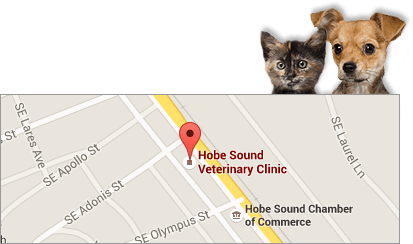Dog howling is a deeply ingrained behavior that can leave many pet owners wondering what it means. Some believe it’s a vestige from their wolf ancestors, while research suggests these vocalizations can signal loneliness, stress, or excitement, depending on context. Additionally, dogs may pick up cues from outside triggers like sirens or other canines, joining in with their own distinct voice. Understanding why your pet howls can improve your bond and help address any underlying concerns. By focusing on frequency, pitch, and duration, you’ll gain clearer insight into your companion’s emotional state. In this guide, we’ll explore the many facets of dog howling, delving into potential causes and offering practical tips for managing excessive vocalizations. Whether you have a curious pup or a seasoned howler, you’ll learn to interpret this fascinating behavior more confidently, ultimately strengthening your relationship with your four-legged friend. Let’s unravel the mystery behind those echoing cries.
Have you ever heard your dog howl? It’s something that many of our canine friends do, especially certain breeds like Beagles, Bloodhounds, Coonhounds, Foxhounds, Alaskan Malamutes, Dachshunds, and Huskies. But what’s behind this unique behavior? Read on to learn more about your dog’s howling and whether or not it’s a cause for concern.
When Howling is Normal
Your dog’s ancient ancestor, the wild wolf, used howling as a way of communicating with other pack members and warning other animals to stay away from their territory. So, most of the time, your dog’s howling is an instinctual behavior related to communication. Your pup is a pack animal, after all.
One normal reason for a dog to howl is because they’re responding to stimuli in their environment, such as an ambulance siren in the distance or the mailman approaching your front door. Or, Fido might howl when they’ve found something exciting, like a bone they buried in the flowerbeds last summer. It’s also possible that your dog howls to “warn” other people or animals away from their territory, just as wild wolves might do.
When Howling is Bad
Although howling is a perfectly normal dog behavior most of the time, there are reasons why it might be a bad thing. One is stress and anxiety—separation anxiety in dogs is common and often causes loud vocalizations, including howling. If your dog has separation anxiety, he or she will probably exhibit other signs when they’re left alone, like eliminating in the house and destroying furniture or other property.
It’s also possible that your dog is howling as a response to pain, perhaps caused by a physical injury or a medical problem like arthritis or dental disease. This is especially likely if you see other signs of pain accompanying the howling, like sensitivity to touch, unusually aggressive behavior, or excessive panting. And if your dog never howled before, but has suddenly started, pain could be the cause.
What to Do if Fido Won’t Stop Howling
If you can’t get your dog to stop howling, pay a visit to the vet’s office. First, you’ll want to have any medical concerns dealt with if they’re present. If howling is purely a behavioral issue, your dog might need training or even anxiety medication. Your vet can help. If you’re considering training your dog yourself, be sure to read our article on Dog Training Mistakes to avoid common pitfalls.
Set up an appointment at our office if you’re concerned about your dog’s health or behavior. We’re always here for you! For comprehensive care, including regular check-ups that can help catch and address issues early, visit our Veterinary Wellness & Pet Vaccinations page.
Understanding Dog Howling in 2025: Instincts, Triggers, and Training
How does dog howling compare to wolf howling?
Wolves originally howled to communicate with pack members over long distances, marking territory, or regrouping while hunting. Domestic dogs have inherited that same vocalization style, but they typically use it in response to certain triggers (sirens, sudden environmental changes, perceived danger) or to express anxiety, excitement, or pain. Though both species share howling as a natural instinct, dogs may exhibit it more randomly, reflecting centuries of domestication and altered social structures. Wolf howling is primarily a coordinated survival strategy, whereas dog howling often emerges from environmental cues or emotional states.
How can you identify different types of howls?
Dogs produce several distinct howls that can reveal different underlying motivations. A long, drawn-out howl, often triggered by distant sounds like sirens or barking, typically indicates normal communication. A repetitive, higher-pitched howl may suggest distress from separation anxiety, especially if accompanied by destructive behavior or accidents indoors. Short, sudden howls followed by signs of discomfort or restlessness could signal pain, possibly linked to an injury or medical issue. Monitoring additional clues, such as body language or changes in appetite, can help pinpoint whether the howl is based on environmental triggers, stress, or physical discomfort.
How do veterinarians diagnose the cause of problematic howling?
Veterinarians typically start with a thorough medical check to rule out underlying health conditions that might cause pain or discomfort. Then they evaluate the dog’s behavior, considering triggers, separation anxiety, or other emotional stressors. Observing any additional signs (like destructive behavior or changes in appetite, energy levels, or sleeping patterns) may give further insight into whether the howling stems from stress or a potential medical issue. In some cases, deeper medical screening or collaboration with a behaviorist is recommended to accurately pinpoint the root cause and develop a suitable management or treatment plan.
Can dogs be trained to stop howling?
Dogs can be trained to reduce or stop howling through consistent guidance and positive reinforcement. Rewarding quiet behavior reinforces calmness, while ignoring or redirecting unwanted howling helps diminish the habit. Teaching a ‘quiet’ command involves waiting for the barking or howling to pause, then offering a treat and praise. For separation anxiety, gradual desensitization to departures—leaving for brief intervals and slowly increasing the duration—can lower stress levels. Ensuring physical exercise, mental stimulation, and a balanced routine further reduces anxiety-driven howling, supporting healthier overall behavior and a more peaceful home environment.
How does howling compare to other dog vocalizations?
Howling is a distinct long-range vocalization that dogs have inherited from wolf ancestors, typically used for communication or territorial cues. In contrast, barking consists of short bursts for alerting or greeting, whining often indicates anxiety or attention-seeking, and growling generally warns others to back away. Although many dogs may howl in response to sirens or sudden noises, certain breeds (Beagles, Bloodhounds, Coonhounds) exhibit this behavior more frequently because of heightened hunting instincts. Observing context and body language helps determine whether a dog’s howling reflects normal communication, environmental stimuli, separation anxiety, or a potential medical issue.
Contact us, your local animal clinic in Hobe Sound, FL!





